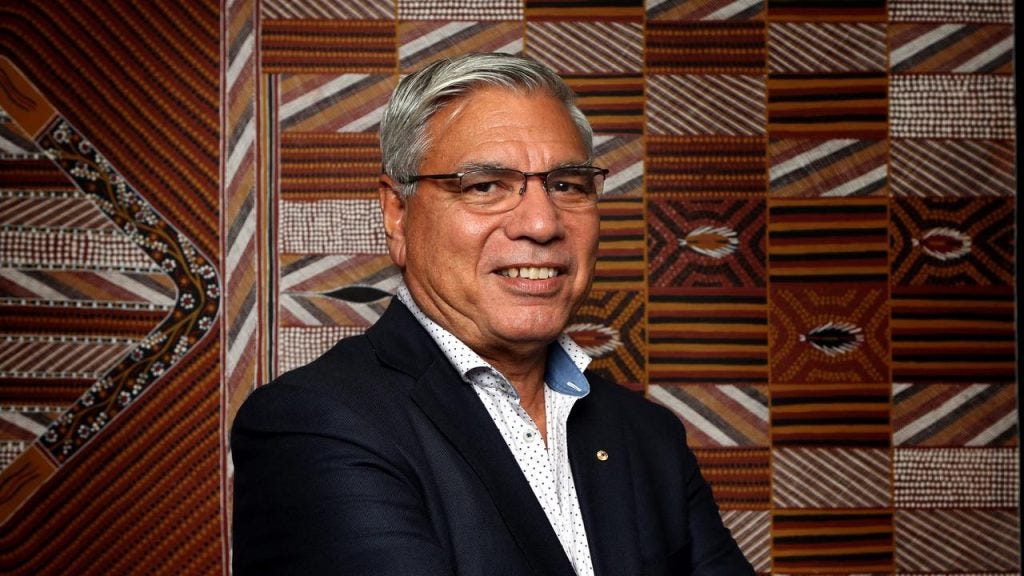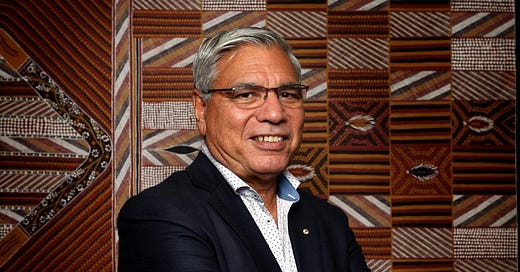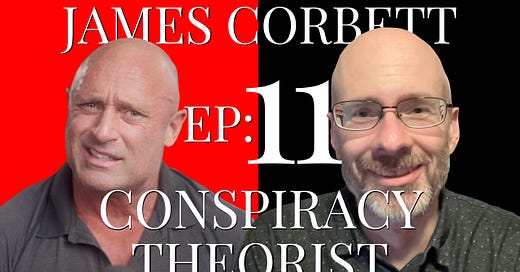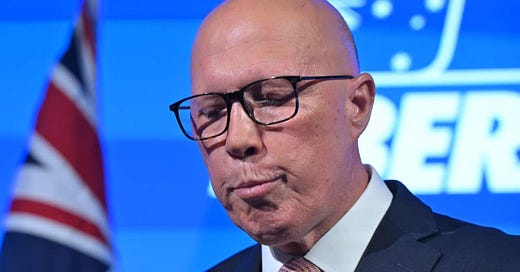
5 Dangerous Blind-Spots In ‘Yes’ Arguments (Part 2)
“The greatest threat to freedom is the absence of criticism.”
Wole Soyinka
My inbox was jammed and my phone was ringing all day in response to the debut article It’s Not Our Fight Vote Yes by former Senator Duncan Spender.
To see what all the controversy is about, read that article first.
Then read 5 Dangerous Blind-Spots In ‘Yes’ Arguments (Part 1). That’s my initial response to the drama in which I identified an indifference towards systemic racism as a flaw from the Yes camp.
Now, buckle-up, here’s instalment two, in which I confront:
Blind-Spot #2: Can’t Get Much Worse
Blind-Spot #3: Concede or Else
Having dealt with the former Senator’s omission regarding systemic racism, next I tackle what he calls his “two half-decent arguments”. In my view, neither pass the smell test.
BLIND-SPOT #2: CAN’T GET MUCH WORSE
“Firstly, Aboriginal affairs couldn’t get much worse”, he asserts.
Really?
Warren Mundine once said to me that the vast majority of Aborigines live in the suburbs, have a job, are repaying their mortgages, educating their children, and coaching the footy team on the weekends.

Who are we to disagree? Sometimes, we political types focus too much on the problems without pausing for a moment to see what’s been achieved.
Some facts might provide perspective.
In the last 235 years, Aborigines in general have courageously transitioned from semi-nomadic hunter-gather societies to the Internet Age. Who can deny the seismic advance.
In 1788, Aborigines spoke at least 250 languages across as many tribes, none of them written. Among today’s Aborigines are highly-literate doctors, barristers, senators, engineers, magistrates, authors and professors communicating in English, a Top 3 language of global penetration and advantage. You can see one shining exemplar here on Liberty Itch.
In 2005, Aboriginal life expectancy was 67 for males and 72 for females. By 2015 it had advanced to 71 for males and 75 for females.
In 1788, Aborigines couldn’t possibly comprehend a Westminster-style bi-cameral parliament, executive and judiciary. Today, there are eleven Aborigines in the Federal Parliament alone, an achievement proportionally greater than the entire Aboriginal population, Aborigines are also serving as Ministers in the Government and as judges.
In 1788, the records show Aborigines removed fingers to facilitate fishing activities for survival. Today some Aborigines play sport at elite levels, win Olympic Gold medals, with two ranking world #1 in women’s tennis in modern times.
In 1788, Aborigines saw only the land they could physically walk. Today, they live and travel worldwide.
In 1789, Aborigines were particularly susceptible to small pox and other introduced diseases. The earliest journals and official medical records point to tragic, widespread loss of life. However, the last case of smallpox in Australia was 1938. “Couldn’t get much worse” ignores our history.
In 2005, Aboriginal life expectancy was 67 for males and 72 for females. In 2010, this improved to 69 for males and 73 for females. By 2015 it had advanced to 71 for males and 75 for females. Again, “couldn’t get much worse” is not accurate.
The former Senator contradicts himself when he simultaneously says “Aboriginal affairs couldn’t get much worse” and then this incendiary, “We should consider ourselves lucky that, in Australia, the descendants of displaced inhabitants aren’t reaching for rockets.” So things could get worse now?
Both these opposites are hyperbole and run counter to the facts I’ve listed.
BLIND-SPOT #3: CONCEDE OR ELSE
The former Senator continues with his leading arguments, “Secondly, saying no would disempower Aboriginal leaders pushing the Voice and empower militant Aboriginal leaders instead. If you say no to Martin Luther King you end up with Malcolm X.”
My agitated mind is desperately trying to follow the former Senator in shoehorning Marcia Langton’s divisive comments into the soaring rhetoric of Martin Luther King. Maybe he has her in mind for the Voice when he writes “if we instead see the election of some Aboriginal leaders who believe in the individual rather than the collective, it would be worth it.” Forgive my scepticism.
Today some Aborigines play sport at elite levels, win Olympic Gold medals, with two ranking world #1 in women’s tennis in modern times.
I just can’t help but feel the former Senator is caving-in to keep the peace like a parent hectored by a naughty child. That only leads to more complaint and grievance.
Or perhaps it’s driven by fear, like giving protection money lest the mob send in their henchmen to rough things up.
Concede Czechoslovakia and hope the next claim won’t be Poland.
No. Never buckle to fear.
So far, I’ve deal with:
Blind-Spot #2: Can’t Get Much Worse
Blind-Spot #3: Concede or Else
In the third and final instalment, I’ll tackle two more blind-spots which, I suggest, no libertarian would have:
Blind-Spot #4: Bureaucratic Expansion
Blind-Spot #5: Government Is Harmless.
In the meantime, let me know your thoughts in the comments below.
The post 5 Dangerous Blind-Spots In ‘Yes’ Arguments (Part 2) appeared first on Liberty Itch.












